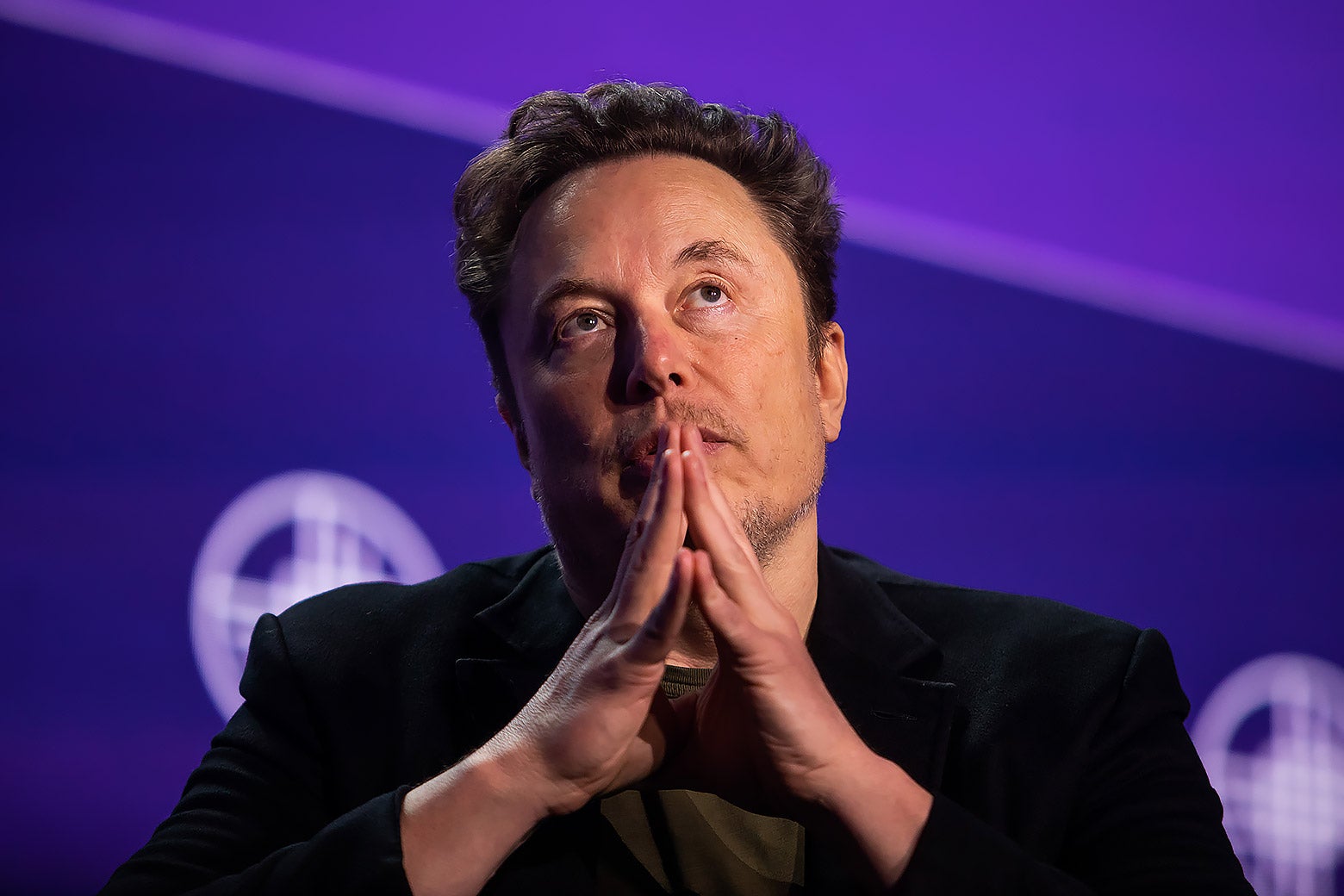Elon Musk has a history of floating wild ideas for X and not implementing them or, at least, slowing them down. Almost a year ago, Musk said he planned to eliminate the ability to block users, a development that would turn the site formerly known as Twitter into a hellscape. He hasn’t actually done it, and if he ever does, there’s no guarantee that the change will stick.
But Musk’s latest plan to remove one of the site’s most famous features is set in motion: Soon, post likes will be anonymous to everyone except the person who sent the post and the person who pressed the like button. Musk and his engineers say the update is a matter of encouraging free expression. “Important to allow people to like posts without getting attacked for it!” Musk argues. Its director of engineering says, “Public opinion is driving the wrong behavior. For example, many people feel discouraged from liking content they may be ‘disturbed’ for fear of retaliation from trolls, or to protect their public image.”
This reasoning is, obviously, silly. Musk portrays hiding the identity of tweeters as a way to let people stick to their beliefs. However, this is not really the case; instead it allows people to approve a post (and add to that post’s stats) without must stand up personally for everything. It comes across as a move by Musk to cater to thin-skinned users who can’t handle the social backlash for showing some confidence. Don’t worry that if they’re not comfortable broadcasting that trust, they just can’t hit the “Like” button.
But what’s actually going on is worse than Musk anonymizing a key feature of the platform to protect the feelings of a few posters. The far more likely driver of change is the obscene pile of spam, bots, and platform manipulation filling the void in Musk’s X. And by hiding information about who likes a post, Musk has made it easier to obscure his mess.
In social networks, a like serves two functions. One is to inform the platform about what we like or what bothers us, so that the company running the platform can serve us the right kind to keep us in the trough and sell us to advertisers. The other is to provide a passive means of expressing appreciation or approval. In this way, likes are a key tool of online community building, like a digital nod or a pat on the back. Some people use likes as bookmarks, but Twitter added different bookmarks in 2018.
Almost every platform honors the social utility of likes. If I want to see every single one of the 3,812,516 accounts that have liked Kylie Jenner’s latest Instagram posts, I can do that. If I want to see every person who liked my friend Bob’s job posting on LinkedIn, I can do that. If I want to see who liked the latest NBA highlight on ESPN’s TikTok, I can do that. This ability is not universal; Instagram can hide who likes a user’s posts, but only if poster enable the feature. Reddit upvotes are private even to the person who created the post being upvoted. But anonymity is baked into Reddit’s culture; very few posters even use their real names there. Critically, the site has guardrails to prevent (albeit not always successfully) people from using anonymity to ruin the experiences of others. Each subreddit has its own moderators, who can crack down when someone is behaving in an antisocial manner.
Guess which social media giant absolutely does NO do you have the infrastructure or the desire to prevent anti-social behaviour? Musk kicked Twitter’s content moderation staff to the bone when he took over in the fall of 2022. In a way, it was a win for him, as his massive layoffs and employee harassment spared Twitter millions of dollars. And despite frequent outages and glitches in Musk’s first few days at the helm, the platform is still standing. Press “post” and your text will immediately appear online. The page can also be something like that making money even though its valuation has apparently fallen since Musk took the company private.
But as a matter of user experience, Musk has allowed the X to deteriorate horribly. The most obvious problem is spam. Automated crypto accounts or DIY porn weren’t part of many users’ daily experience before Musk came along. These days, they’re practically unavoidable in replies to many users’ posts, and they’re firing off direct messages with reckless abandon.
A looming problem is advertising. Blue-chip advertisers started fleeing the moment Musk came on board. Some have returned, but X’s owner often finds new ways to get rid of them. In late 2023, both Musk’s personal anti-Semitic comments and those he allowed to appear next to ad content caused more companies to remove him from the platform. X appears to have fewer frequent users now than before Musk’s reign, so advertisers on the site are still preaching to a smaller congregation.
These failures overlap in a way that should make protecting the identities of accounts that like posts attractive. Many of the ads currently featured on X are downright awful.
Before Disney removed ads from the platform, you may have come across an ad for a new Marvel movie. At this point, you have a better chance of being served an ad for a strangely named crypto product you’ve never heard of in your life. You are less likely to engage with this than Deadpool, and the return on investment for X’s partners is likely to decline. But what if you didn’t need to engage? What if narratives of dubious origin, those without regular people behind them, could fulfill that commitment? This is a little easier to achieve when the general public cannot see who is behind the accounts that generate the numbers.
The same incentive exists for all types of hackers. Foreign governments (even US allies, it turns out) have used X to run disingenuous influence campaigns against members of Congress. Masking these actions is easier when most people have no idea who is actually engaging with the posts. Any motivated politician or pundit with a point to make will similarly now find it easier to create the impression that large numbers of people online support their ideas. Twitter likes were never a great form of resistance, but with their public visibility, they were their own kind of barrier against bad behavior.
Musk has every reason to lower that barrier. However, the main argument against trusting him is that perhaps his most frequent area of dishonesty since buying Twitter has been manipulating the platform. When Musk first inked his Twitter deal in the spring of 2022, he cited “defeating spam bots” as a motivator. When he tried to back out of the deal, he paradoxically argued that he was because there were many inauthentic accounts, the exact thing he had said he wanted to defeat when he made the deal. When it launched blue verification badges, it pitched it as a way to ensure users’ authenticity. Even that was funny, since the new verification system has made Twitter an impossible place to get reliable information. Hiding who likes a post is just one more step in making it harder to analyze garbage.

